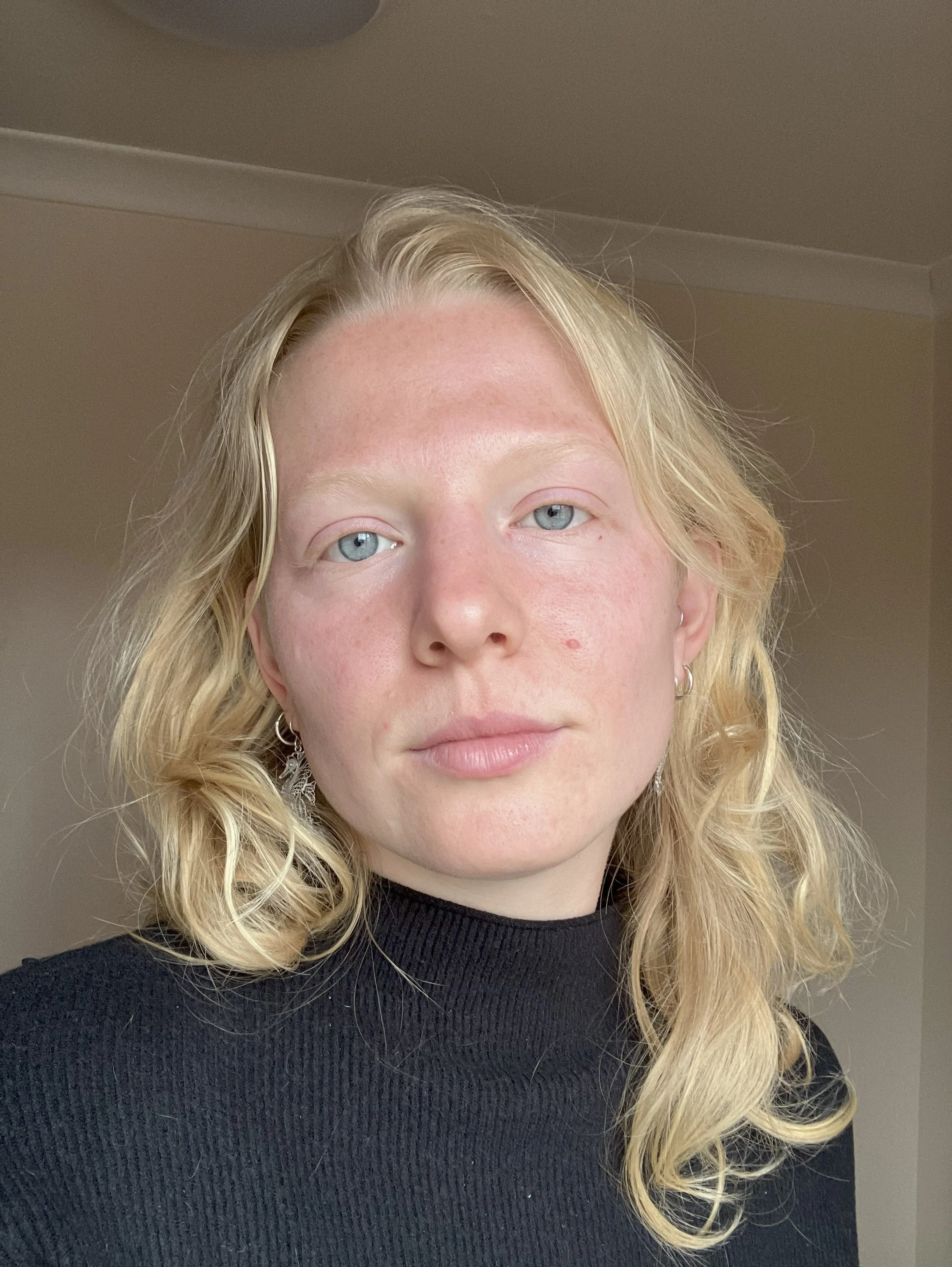lik-m-aid
by Madison Ellingsworth
My daddy used to spend his South Philly summers hanging off scaffolding, sloughing paint off houses. My sister and I loved to dash through the alleys below him and pretend it was snowing. We would stick out our tongues and catch the paint flakes. They felt good in our mouths: sweet and crunchy.
"There's nothing wrong with a little paint, dust, and grime," Daddy used to say. We were proud to be sprinkled.
My sister and I ate Hamburger Helper for dinner five nights a week. For the other two we had ice cream. The other kids in our complex were built like the rolypolies we fingered out of sidewalk cracks. Like the rolypolies we marched across our forearms, brushed onto the streetside sand, and watched flail on their backs.
Despite our diets, my sister and I were no rolypolies. Daddy's paint flakes filled up the nutrient deficient holes in our bones and tightened our muscles. I could do fifteen somersaults in a row without puking. My sister could walk around in a handstand for an hour. The two of us could sprint alongside the police cruisers as they raced past our complex, and when the bell rang at the end of physed, our teachers would have to demand we stop doing pull-ups.
The summers became snowless again when our daddy got sick. My sister and I hunted for wedges of rotted, paint-covered wood in the alleys. We kept them in our pockets and sucked on them while we watched cartoons. They were sweet and colorful like Lik-M-Aid. They were a distraction from our daddy, coughing and wilting in his la-z-boy.
While we got stronger, our daddy got smaller. My sister and I hid our wedges from his sallow eyes. We feared a scolding from the sunken depression in the la-z-boy.
A storm rolled through the city one night. It pulled down trees and powerlines, and pinned the neighbor’s pitbull under a telephone pole. Together my sister and I lifted the pole above our heads like it was a limbo stick. The dog must have been eating some alley paint of its own, because it leapt up without a single broken bone. That was when we decided to share the paint secret with our daddy.
But by then it was too late.
Everyone says that what happened with the pitbull “must have been a miracle.” I do not think of it that way. If miracles were real, God would have cured our daddy, and that dog would have lifted the telephone pole off itself. But it was us who saved that dog, and it was God who let our daddy die.
After our daddy went up to Heaven, my sister and I bought ourselves a frosted tray cake from the Country Kitchen Outlet and sprinkled it with red paint. We ate it on the curb in front of our complex.
“I'm gonna work in a kitchen,” my sister declared, her lips red. “A hospital kitchen.”
My eyes watered. “I bet Daddy is so proud in Heaven above,” I said. It was I who was proud, though. I gave my sister a hug that would crush a normal girl. “I believe in you,” I told her. I knew she would do something great one day—something bigger than paint sloughing and Hamburger Helper.
Six months later I found out what that something was. I was listening to the radio on the complex stoop. A song about dancing across every beach in the country was playing. A somber newscaster interrupted it with a breaking story.
“Today a woman was arrested in connection with a string of recent poisonings,” she said. The suspect had been working in a hospital kitchen, where she had been pouring lead paint into soups, stews, juices, coffees, jellos, teas, milkshakes, ice creams, and bisques. She was responsible for the deaths of eleven patients and five employees. The newscaster gave a curt run-through of the upcoming week’s weather, then the beach dancing song resumed.
No one knows how many people my sister helped when she dumped lead paint into those vats. They only know how many she killed. Still, the women’s correctional facility is not the worst place for her. Underneath its guise of sterility and swiped across its smooth walls are layers and layers of what she needs. A welcome distraction, in a beige, green, and gray rainbow.
When I think about it that way, it does not sound so bad.
Photo of Madison Ellingsworth
BIO: Madison Ellingsworth likes walking in Portland, Maine. She has work forthcoming in Short Beasts and The Orange Rose. Two of her short stories will be included in a short story anthology, Positivity Bias, which will be released this fall through Littoral Books. Links to Madison's previous publications can be found at madisonellingsworth.com. She is also on Instagram @madisonellingsworth.
